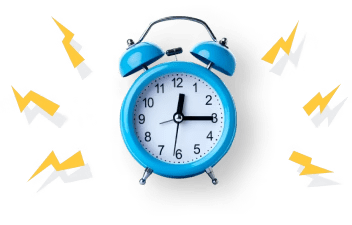Table of Contents
TogglePatient Care Plan NURS FPX 6610 Assessment 2
Name
Capella University
NURS-FPX6610: Introduction to Care Coordination
Instructor’s Name
Date: 26/02.2024
Patient Identifier: SNY-2024-0023 Patient Medical Diagnosis: Ovarian cancer, uncontrolled diabetes and hyperglycemia
Nursing Diagnosis
|
Goals and Outcome |
Nursing Interventions |
Rationale |
Outcome Evaluation and Re-planning |
|---|---|---|---|---|
First Diagnosis:Risk for Impaired Glycemic Control Assessment Data: Mrs. Snyder’s recent admission to St. Anthony Medical Center was primarily due to uncontrolled diabetes and hyperglycemia. Mrs. Snyder reports difficulty managing her diabetes regimen amidst the stress of her ovarian cancer diagnosis and treatment. She expresses concern about the impact of her diabetes on her overall health and ability to undergo cancer treatment effectively. SMART Goals: Specific: Mrs. Snyder will achieve blood glucose levels within the target range. Measurable: Blood glucose levels will be monitored using a glucometer, with readings recorded in the medical chart at least four times daily. Achievable: Achieving and maintaining target blood glucose levels is feasible through insulin therapy, dietary modifications, and regular monitoring. Relevant: Tight glycemic control reduces the risk of diabetes-related complications and promotes overall well-being during cancer treatment. Time-bound: Target will be achieved within one week of hospitalization. |
|
|
Empowering Mrs. Snyder to monitor her blood glucose levels independently promotes self-management and enhances glycemic control.
Collaborating with the diabetes educator ensures that Mrs. Snyder receives personalized guidance and support in managing her diabetes effectively. Providing emotional support helps reduce stress levels, which can contribute to improved glycemic control (Sia et al., 2021). |
Evaluation: Mrs. Snyder demonstrates improved understanding of diabetes management techniques and reports more stable blood glucose levels.
Re-planning: If targets are not reached, review Mrs. Snyder’s diabetes treatment plan and look into other resources, such support groups for people with diabetes, to improve adherence. |
| Second diagnosis:
Risk for Imbalanced Nutrition Assessment Data: Mrs. Snyder’s recent diagnosis of advanced ovarian cancer and impending chemotherapy/radiation treatment raise concerns about potential appetite changes and nutritional deficits. She expresses apprehension about undergoing treatment and worries about experiencing nausea, vomiting, and changes in taste perception, which may affect her dietary intake. Mrs. Snyder reports following a kosher diet due to her Orthodox Jewish faith, which may pose challenges in meeting nutritional needs during treatment. SMART Goals: Specific: Mrs. Snyder will maintain adequate oral intake and demonstrate tolerance of prescribed dietary modifications. Measurable: Mrs. Snyder’s weight will remain stable. Achievable: Customized dietary modifications and supportive interventions can mitigate treatment-related side effects and ensure adequate nutrition intake. Relevant: Proper nutrition supports Mrs. Snyder’s overall health and enhances her ability to tolerate cancer treatment and recover effectively. Time-bound: Mrs. Snyder will achieve stable oral intake and tolerance of dietary modifications within one week of hospitalization. |
|
|
Assessing Mrs. Snyder’s dietary preferences and cultural considerations ensures the development of a tailored nutrition plan that respects her cultural and religious beliefs.
Collaborating with a registered dietitian helps optimize Mrs. Snyder’s nutritional intake and addresses any dietary challenges arising from her cancer treatment. Providing education empowers patient and her family to proactively manage treatment-related side effects, promoting adherence to the prescribed dietary plan and overall nutritional well-being (Reber et al., 2021). |
Evaluation: Mrs. Snyder demonstrates adherence to the prescribed dietary modifications and reports minimal treatment-related side effects impacting nutrition intake.
Re-planning: If goals are not met, reassess Mrs. Snyder’s dietary needs and explore alternative dietary strategies or supportive interventions to address nutritional deficits effectively. |
| Third Diagnosis:
Risk for Ineffective Coping due to stress. Assessment Data: Mrs. Snyder’s recent diagnosis of advanced ovarian cancer, coupled with uncontrolled diabetes, poses significant challenges that may impact her ability to cope effectively. She expresses feelings of fear, anxiety, and uncertainty about her prognosis, treatment outcomes, and ability to fulfill her familial obligations. Mrs. Snyder reports assuming the role of primary caregiver for her husband, children, and elderly mother, adding to her stress and emotional burden. Cultural and religious expectations within Mrs. Snyder’s Orthodox Jewish community may influence her coping mechanisms and support-seeking behaviors. SMART Goals: Specific: Mrs. Snyder will verbalize adaptive coping strategies and anxiety associated with her cancer. Measurable: Mrs. Snyder will identify and discuss at least two coping strategies during therapeutic sessions with the healthcare team. Achievable: Therapeutic interventions and supportive counseling can help Mrs. Snyder develop and implement effective coping mechanisms. Relevant: Improved coping skills reduce psychological distress and enhance Mrs. Snyder’s ability to navigate the challenges of her diagnosis and treatment. Time-bound: Mrs. Snyder will verbalize adaptive coping strategies within one week of initiating therapeutic interventions. |
|
|
Assessing Mrs. Snyder’s coping resources and cultural beliefs facilitates the development of tailored interventions that align with her individual needs and preferences.
Teaching stress management techniques empowers Mrs. Snyder to actively participate in her emotional well-being and cultivate adaptive coping skills to navigate the challenges of her diagnosis and treatment (Antoni et al., 2022). Collaborating with a mental health professional ensures access to specialized support services that address Mrs. Snyder’s emotional distress in a culturally sensitive manner, promoting holistic care and psychosocial well-being (Antoni et al., 2022). |
Evaluation: Mrs. Snyder demonstrates improved coping skills and reports a reduction in anxiety levels.
Re-planning: If goals are not met, reassess Mrs. Snyder’s coping strategies and explore additional psychosocial support services, such as support groups or religious/spiritual counseling, to address ongoing emotional needs effectively. |
References
Antoni, M. H., Moreno, P. I., & Penedo, F. J. (2022). Stress management interventions to facilitate psychological and physiological adaptation and optimal health outcomes in cancer patients and survivors. Annual Review of Psychology, 74(1). https://doi.org/10.1146/annurev-psych-030122-124119
Bhargavan, R., Philip, F., Krishna, J., Augustine, P., & Thomas, S. (2023). Comparison of preoperative risk assessment tools in cancer patients undergoing oncosurgery-A prospective study. European Journal of Surgical Oncology, 49(2), e202–e202. https://doi.org/10.1016/j.ejso.2022.11.555
Hamaker, M. E., Oosterlaan, F., Huis, L. H., Thielen, N., & Vondeling, A. (2020). Nutritional status and interventions for patients with cancer – A systematic review. Journal of Geriatric Oncology. https://doi.org/10.1016/j.jgo.2020.06.020
Karbowa, M. (2023). Attachment styles, coping with stress, and social support among cancer patients. Contemporary Oncology (Poznan, Poland), 27(2), 95–100. https://doi.org/10.5114/wo.2023.130015
Oba, N., Barry, C. D., & Gordon, S. C. (2020). Development of a nurse-led multidisciplinary based program to improve glycemic control for people with uncontrolled diabetes mellitus in a community hospital, Thailand. Pacific Rim International Journal of Nursing Research, 24(3), 349–362. https://he02.tci-thaijo.org/index.php/PRIJNR/article/view/206447
Reber, E., Schönenberger, K. A., Vasiloglou, M. F., & Stanga, Z. (2021). Nutritional risk screening in cancer patients: the first step toward better clinical outcome. Frontiers in Nutrition, 8. https://doi.org/10.3389/fnut.2021.603936
Sia, H.-K., Kor, C.-T., Tu, S.-T., Liao, P.-Y., & Wang, J.-Y. (2021). Self-monitoring of blood glucose in association with glycemic control in newly diagnosed non-insulin-treated diabetes patients: a retrospective cohort study. Scientific Reports, 11(1), 1176. https://doi.org/10.1038/s41598-021-81024-x
Wang, Y., & Feng, W. (2022). Cancer-related psychosocial challenges. General Psychiatry, 35(5), e100871. https://doi.org/10.1136/gpsych-2022-100871

Susie Taylor is an expert in Capella FlexPath Nursing programs, with years of experience helping nursing students succeed. She combines practical nursing knowledge with a deep understanding of Capella’s flexible, self-paced learning.









